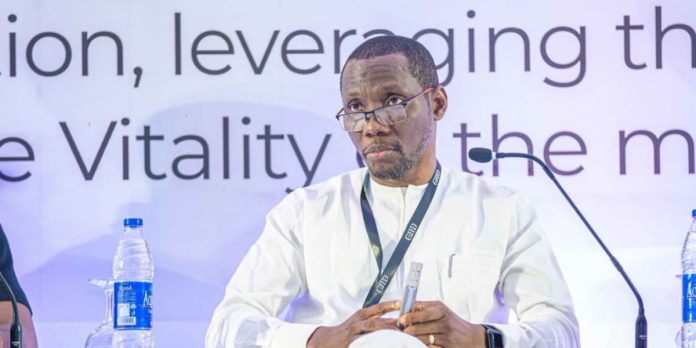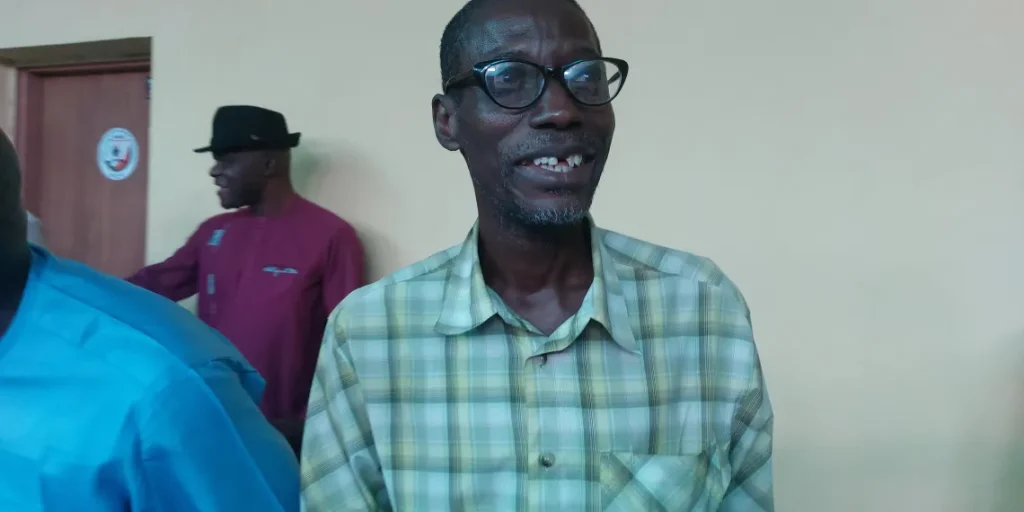The Conversation Africa strongly condemns the harassment of Adejuwon Soyinka, its West Africa editor, by operatives of Nigeria’s Department of State Security (DSS).
Soyinka was detained for six hours on Sunday after arriving in Lagos from the UK. Immigration officials initially stopped him, citing an issue with his passport. However, during questioning by DSS operatives, he was informed that his name had been placed on a watchlist by an unnamed state security agency for undisclosed reasons.

Though Soyinka was eventually released, his passport was withheld, pending confirmation from the DSS that the unnamed agency no longer had an interest in him.
Soyinka, an award-winning journalist, has been with The Conversation Africa since February 2020. The Conversation, a global network, provides independent, research-based insights from academics and researchers, freely available to the public and other media outlets.
Amnesty International also listed few Journalists that have been harassed recently. They are
1. Segun Olatunji
2. Madu Onuorah
3. Daniel Ojukwu
4. Juwon Soyinka
Segun Olatunji recounted that on the evening of Friday, March 15, while he and his seven-year-old son were at home watching the popular TVC programme “Journalists Hangout,” armed military personnel stormed into his living room in a manner reminiscent of a Gestapo raid.
The soldiers were accompanied by his wife, whom they had taken from her shop and forced to lead them to his home.
It’s important to recognize that producing news comes with costs, yet we are committed to keeping our stories accessible without placing them behind an expensive paywall.
He was promptly arrested and taken to an air force base in Lagos.
“On March 15, I was at home in Lagos, watching ‘Journalists’ Hangout’ with my seven-year-old son when soldiers suddenly burst into the living room.
“I saw my wife and one-year-old son among them, both crying. I asked what was going on, and she told me they had arrested her at her shop and coerced her into showing them where I was,” Mr. Olatunji explained, detailing how the soldiers had used his wife as bait to capture him.
During his time in military detention, Mr. Olatunji would later discover that intelligence officers had been staying at a hotel near his wife’s shop for days before the raid.
He further revealed that during the arrest, he recognized a senior military officer among the soldiers, a colonel named Lawal, and asked him why he was being detained.

On Wednesday May 22, 2024,Nigerian Police arrested the publisher and editor-in-chief of Global Upfront Newspapers, Madu Onuorah, at his home in the Lugbe district of Nigeria’s capital, Abuja. He was later released the followin
On August 5, 2024, The Nigerian Police arrested popular whistleblower, Bristol Tamunobiefiri, also known as PIDOM, for allegedly undermining the integrity of government operations.
Police arrested 26-year-old Daniel Ojukwu on May 1 in Lagos. He was reported missing the following day by his colleagues at Nigeria’s Foundation for Investigative Journalism (FIJ), after friends and family were unable to reach him by phone. FIJ hired private investigators who found his last location before he was arrested, leading journalists to demand answers from Nigerian police. He was later released 10 days later.
The Nigerian Police Force has provided an explanation for the arrest of Bristol Isaac Tamunobiefiri, popularly known as PIDOM, who gained notoriety for operating an X (formerly Twitter) account that frequently leaked sensitive government documents.
In a statement released on Saturday, police spokesperson Olumuyiwa Adejobi, an Assistant Commissioner of Police, said that PIDOM was apprehended in his hotel room in Port Harcourt, Rivers State, as part of a well-coordinated operation by the National Cybercrime Centre of the Nigerian Police Force (NPF-NCCC).
Adejobi explained that PIDOM was arrested on August 5, 2024, due to his alleged involvement in leaking government documents, which the police say undermined the integrity of government operations. He stated, “The force will leave no stone unturned in enforcing the law and ensuring a more secure nation.”
According to the police, PIDOM faces several allegations, including unlawful possession and dissemination of classified documents, as well as various cyber-related offenses. The police have committed to conducting a thorough investigation.
PIDOM’s X handle, @PIDOMNIGERIA, has also faced criticism for allegedly spreading fake news and refusing to retract incorrect information when challenged.
Speculation regarding PIDOM’s whereabouts arose after his sudden absence from social media. Journalist David Hundeyin revealed on Thursday that his arrest was ordered by the National Security Adviser.
Documents circulating online suggest that the police are prepared to grant PIDOM administrative bail. However, on Friday, Hundeyin reported that the police have decided to arraign PIDOM in court, with activists and lawyers preparing to secure bail upon his arraignment.
This harassment sends a chilling message not only to journalists but also to academics. Both press and academic freedoms, which support each other, are essential pillars of a free and democratic society. Journalists and scholars must be able to share inconvenient truths without fear of reprisal from those in power.


